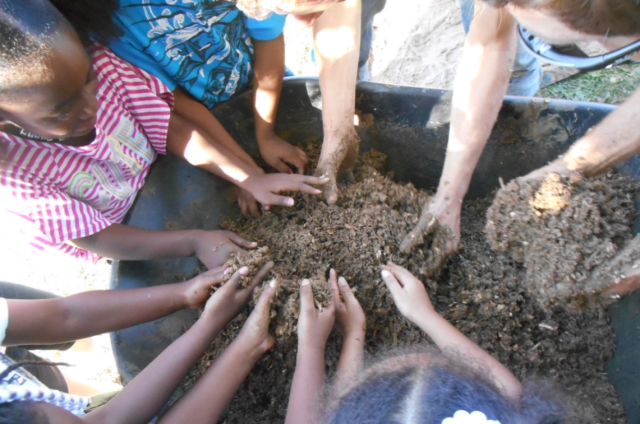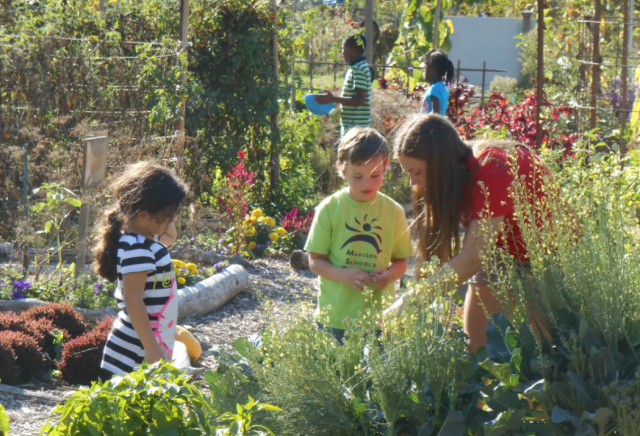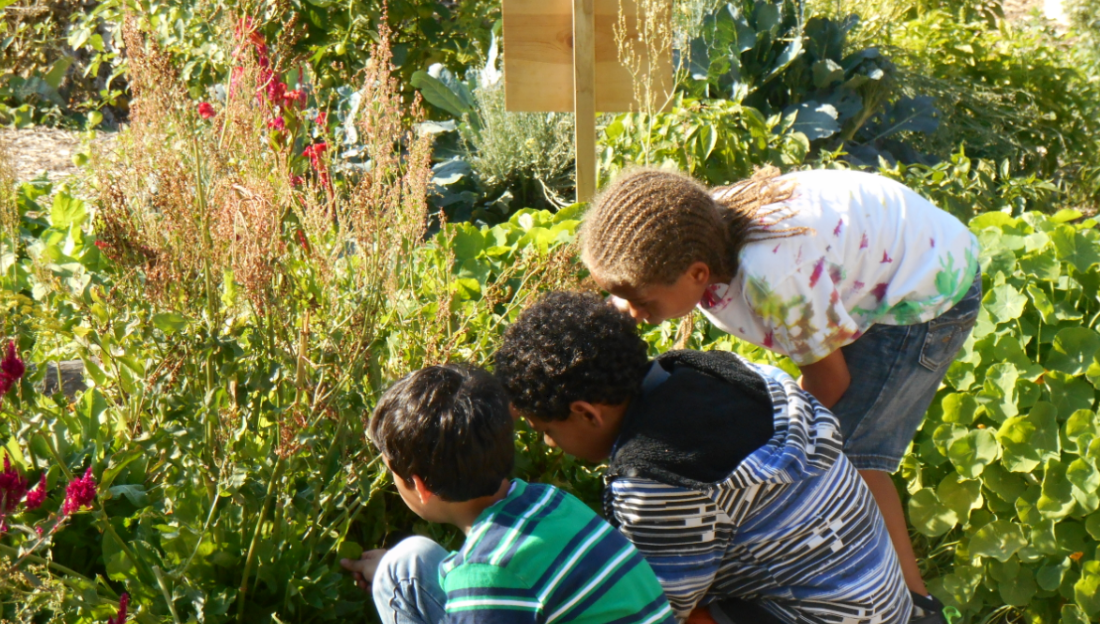BTN.com staff, May 16, 2016
 Every parent wonders at some point: How do you get kids to eat their vegetables? The answer: You make them grow the vegetables too!
Every parent wonders at some point: How do you get kids to eat their vegetables? The answer: You make them grow the vegetables too!
?When children have the opportunity to grow their own food, they just have a much closer relationship with that food,? said Nathan Larson, director of the Wisconsin School Garden Initiative. ?Opposed to, say, a vegetable that they?ve had no connection to prior to it showing up on their plate, a vegetable that they?ve helped grow through the whole season and they?ve helped prepare in the kitchen ? they?re more likely to try that food and they?re much more likely to enjoy it.?
Through garden-based education, the Wisconsin School Garden Network - a project borne out of WSGI - is improving the health and wellbeing of Wisconsin?s youth. The network will provide technical assistance to 200 educational garden program sites throughout the state as well as gardening training and educational resources for more than 2,000 schoolteachers, early-care providers, parents and community educators.
?We?re seeing a lot of interest in this across the state,? Larson said. ?There are a lot of new gardens being put in on the grounds of schools and early-care and education centers, and after-school sites and other community sites. We know through this work that it takes a lot of work to maintain a garden and sustain a garden program.
?The goal of the network is really to create a support structure to link all these different gardens around the state, so that educators, parents, community leaders and, in general, school garden leaders and enthusiasts have a way to connect with each other and share resources and best practices and ideas,? he added. ?It?s really improved the sustainability of not only every individual garden in the state but the overall garden network and movement.?
 WSGI was established in 2013. The program offered free training for garden leaders, created a website and social media sites to share their collection of gardening resources, and assessed student knowledge and attitudes related to fruits and vegetables. After several years of steady success, the project leaders decided to expand the program into the Wisconsin School Garden Network.
WSGI was established in 2013. The program offered free training for garden leaders, created a website and social media sites to share their collection of gardening resources, and assessed student knowledge and attitudes related to fruits and vegetables. After several years of steady success, the project leaders decided to expand the program into the Wisconsin School Garden Network.
?It?s really a scaling up,? Larson said. ?The initiative went so well. It was such an effective project with the amount of teachers we were able to reach, the growth that we are seeing and at the same time, we saw a lot more need. So it just made sense to build this up and to increase that professional development for teachers.?
WSGN and the Cultive Health Initiative are funded by a five-year $1 million grant from the Wisconsin Partnership Program, which is based at the University of Wisconsin School of Medicine and Public Health.
[btn-post-package]Many states agencies and community groups are expressing interest in the program too, including local health departments, nonprofit organizations and YMCAs. Together, they?re enhancing much more than the well-being of Wisconsin children.
?We see so many positive benefits to garden-based education - certainly the health benefits, but also academic achievement and community building,? Larson said. ?There are many, many benefits to gardens.?
By Jason Dorow







